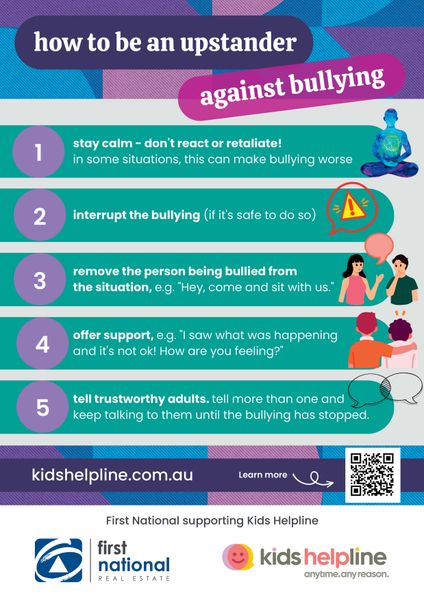Every 60 seconds a young person contacts Kids Helpline.
Whether the call turns into a life-saving experience, or is simply an opportunity to gain some clarity, Kids Helpline and their qualified counsellors are available any time and for any reason for Australian children, adolescents and young adults aged from 5 to 25.
First National Real Estate has embraced a partnership with the team at Kids Helpline over a number of years now, working to raise awareness of the excellent support it provides young Australians. In 2019, the national helpline had responded to more than 8 million contacts over a period of some 28 years, helping children, young people and families manage the challenges of modern life. The increase to statistics over recent Covid years is staggering.
Whist they assist with all manner of issues including cyber bullying, social media and mental health, anxiety, abuse, depression, coping strategies and much more, Kids Helpline is currently running a promotion and asking for help to fight bullying.
A message to anyone who is being bullied, or knows someone who is being bullied: There are lots of things you can say and do to make the bullying stop and to cope.
What is bullying?
The Kids Helpline website states that bullying behaviours are:
- Aggressive, unkind or mean behaviours
- Repeated behaviours (it must happen multiple times, in an ongoing way to be defined as bullying)
- Happen on purpose
- Must have a power imbalance, meaning that people bullying and the people being bullied aren’t seen as being ‘equal’, e.g. older, bigger people picking on smaller, younger people, or ‘popular’ people targeting someone who they see as being ‘unpopular’, or who is struggling to make friends
Some other serious types of behaviours, like discrimination, harassment and abuse, can overlap with bullying and are actually against the law.
Kids Helpline differentiates this and reminds us that bullying is not the same as:
- Being rude. Saying or doing something hurtful that wasn’t planned or meant to hurt someone, e.g. someone pushing in front of you in the canteen line
- Being mean. Doing something hurtful to someone on purpose once or twice, e.g. a friend refusing to play with you one day
- Conflict. Having a disagreement with a friend, e.g. two friends getting into an argument and saying mean things to each other
- Respectful feedback on behaviours you're doing that aren’t ok, e.g. “It’s not ok roll your eyes every time they talk about sport”
- A friend putting in a ‘boundary’ e.g. “I don't like it when you keep telling me what to do”
- Natural consequences in socialising, e.g. a friend not trusting you because you shared their secret
To learn more about types of bullying, how to cope with and respond to bullying and how to be an UPSTANDER , click HERE






